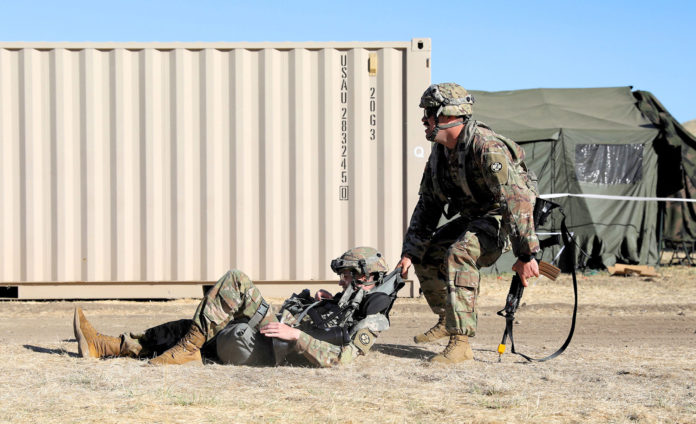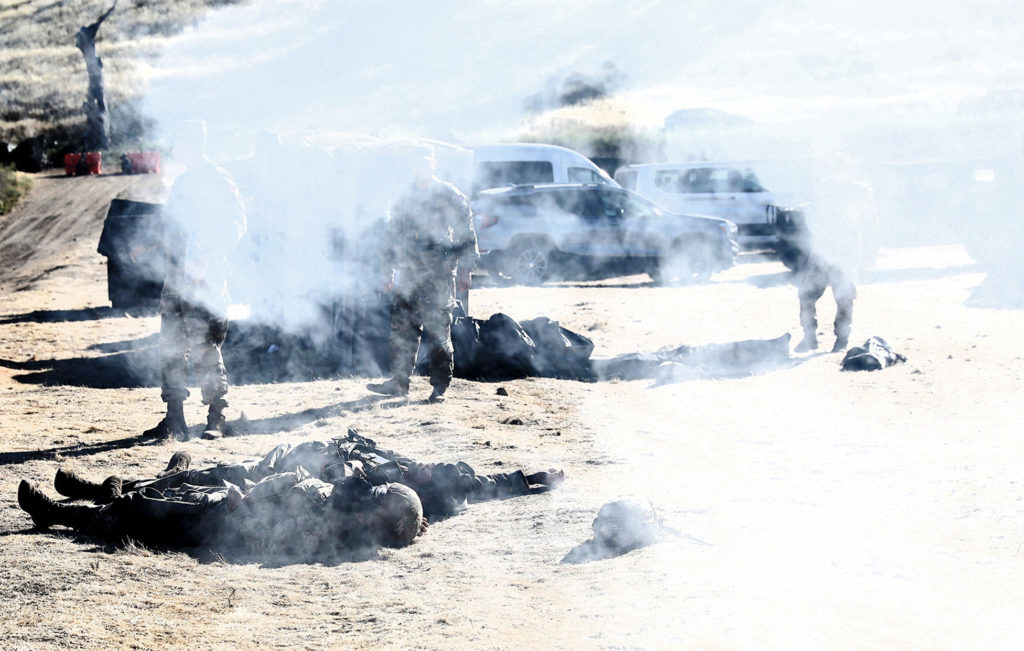
JOLON — Combat Support Training Exercise 91-24-01 kicked off at Fort Hunter Liggett, where observer coach/trainers (OC/Ts) from the 85th U.S. Army Reserve Support Command supported the exercise to ensure training units met the readiness level for future missions, overseas exercises and deployments.
OC/Ts with the 2-340th Training Support Battalion, based out of Louisville, Ky., and the 3-337th Training Support Battalion, based out of Fort Knox, Ky., integrated with various units that participated in the exercise to assess and improve operations for potentially real-world events.
“The group of OC/Ts we have are fantastic; they are very knowledgeable, very easy to work with, and very easy to get a hold of; any issues that we are having, they are helping to get to the bottom of, and we appreciate all the support that we have been getting so far,” said Capt. Dalton Canon, Company Commander, 733rd Transportation Company, based out of Reading, Penn. “They will work with us on a couple of (exercise) injections that will help us get after a couple of our Mission Essential Tasks List.”

Combat Support Training Exercises (CSTXs) are designed to evaluate Army Reserve units’ readiness for mobilization. They accomplish this by injecting exercises to test soldiers’ knowledge of their Mission Essential Task List (METL). OC/Ts observe soldiers completing the task at hand and will conduct an After-Action Review at the end of the exercise to brief units on their performance during any given task.
“These kinds of exercises are very beneficial for us as they help us to prepare for anything that might happen in the future,” said Pfc. Benjamin Lopez with the 733rd Transportation Company. “This is the first exercise I am part of being new to the Army, and it helps me understand what the Army is about; we have to protect ourselves; we have to protect the soldiers I am serving with and also the civilians from any threats we might face.”
This year, more than 4,400 soldiers from different parts of the country and various military occupations took part in CSTX 91-24-01 from June 1-15, hosted by the 91st Training Division at Fort Hunter Liggett.

“These soldiers only train an average of 63 days per year, and they are phenomenal at their jobs,” said Staff Sgt. Jeremiah Doebler, an OC/T assigned to the 2-340th TSBN, tasked with evaluating the 733rd Transportation Company. “I admire them because they carried out their mission gracefully and efficiently. I didn’t realize how much of an impact simple interjections and tweaks could make to help mold better practices.”
The exercise focuses on training different Army Reserve units. Medical, logistics, quartermasters and transportation units are some of the units that participated this year. Every unit runs missions according to its designated military task.
“I have learned that they have been operating at a quarter of the authorized personnel for their battalion, and despite all setbacks, the mission still got accomplished,” Doebler said. “Junior soldiers seemed to be the hungriest for knowledge, and after a work report was established, the soldiers came to the OC/Ts for answers. I feel like we all walked away a little better than before.”














